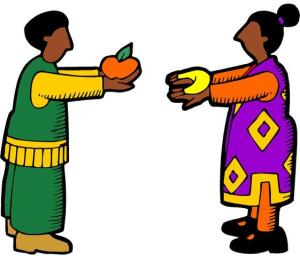Tags
Be in the One who makes me who I am, Helen Tang, Inspire hope or decay resilience, Live with gratitude or die with thankfulness, Permission to anticipate, Philippians 4:12-13, Privilege of solitude, Self-isolation and solitude, Solitude and the Secret of Contentment, Spiritual Connectedness, Swapping Covid for mental health, Trading pandemics
In the coming New Year I wonder if you can give yourself permission to anticipate a better year than this one. Or do you fear it could be worse?
What are you reading or listening to that inspires hope or that decays resilience?
I was fascinated therefore by Helen Tang’s thoughts on the pandemic. She writes as a senior medical student working in Saskatchewan conducting initial contact-tracing phone calls and investigations:
I would not be surprised if in a few months or years, we swapped the COVID-19 pandemic for a mental health one without being creative about ways to think upstream and prevent this. When we emerge from the pandemic, it will be crucial to offer support, such as providing free or affordable counselling, training more physicians in mental health and teaching children coping strategies in schools.
Self-Isolation isn’t the same as Solitude
She shares her first-hand, front-line account of making contact with persons who either have the virus or who have been in close contact with someone who has the virus. She comments,
“… for many individuals and families, self-isolation is a privilege that cannot be afforded or easily undertaken.
For young children and homes without adequate space, isolation is difficult or impossible. In this situation, the household has to isolate as a whole. This means that the countdown after exposure for those who are close contacts in the household does not start until after the person who has the virus is no longer deemed infectious. This can result in up to a 28-day isolation for some household members.”
Self-Isolation and Solitude as Privilege?
When Tang predicts that we may well swap “the COVID-19 pandemic for a mental health one” – she couches this in the awareness that we need to be “creative about ways to think upstream and prevent this.”
It is my guess that the privilege of resiliency during this pandemic is not so much based on economic factors, but on spiritual factors. In other words, the creativity needed to think and prevent a mental health pandemic is rooted in something ancient, not something novel. Those who have a robust spirituality that is connected relationally with the One who made us for Himself may well know that – live or die, rich or poor, succeed or fail – we thrive in a spiritual ecosystem however decaying the pandemics may be.
After all, we have been becoming, for some time, a demented, abortive, euthanizing, permissive, drug addictive decaying society; this pandemic has merely exposed the spiritual decay of societies that have lost touch with the connectedness of the Creator God. More mental health practitioners will not turn the tide. Only a spiritual renewal can address the deepest need of the human soul for when this or that pandemic, or this or that crisis comes through, as it invariably does and will, it is our spiritual connectedness that will allow us to live with gratitude or die with thankfulness.
The Secret of Being Content
Therefore, whether you may be in forced into self-isolation or are in blissful solitude, may you contemplate what the Apostle Paul wrote so long ago about the secret of being content:
I’ve learned by now to be quite content whatever my circumstances. I’m just as happy with little as with much, with much as with little. I’ve found the recipe for being happy whether full or hungry, hands full or hands empty. Whatever I have, wherever I am, I can make it through anything in the One who makes me who I am.
Solitude & the Secret of Contentment
For more on what to do with solitude, I recommend reading the insights of Henri Nouwen who so well articulated the difference between a crushing loneliness and a life-giving solitude:
Solitude is the Furnace of Transformation
This is more enigma than dogma.


Thanks so much for sharing this. A visit this morning to a slum area veggie garden and soup kitchen helped my wife and I count our many joys, appreciate the simple things of life and connect with ‘salt of the earth’ folk serving their community selflessly. And now this bonus post reminder and inspiration!
I also like, ‘only a spiritual renewal’… Our house church community considering this topic at present.
Rich treasures in 2021, Rusty!
LikeLiked by 1 person
Always good to hear from you, and to hear something new about the day to day “ordinary” work you do to build into the common good. Perhaps spiritual renewal is the theme of our age that the Spirit is sweeping over on us. I see this as a great opportunity – as the “church” is pruned, may the remaining branches be fruitful. May you experience a fruitful 2021 – stay connected to the Vine!
LikeLiked by 1 person
Thank you for this. And I think even those who believe in God need help in solitude. This pandemic has been excellent in exposing the weaknesses of our society, for sure. May God be glorified in all of this. Happy New Year, Lisa
Sent from my iPhone
>
LikeLiked by 1 person
As one well acquainted with solitude and loneliness (and the difference between the two), may you find what your soul needs when you are with the Lover of your soul. Thanks for the note.
LikeLike
Pingback: Disciples and the Great Invitation | Calvary Baptist Church
Pingback: The Power of Perspective | More Enigma Than Dogma